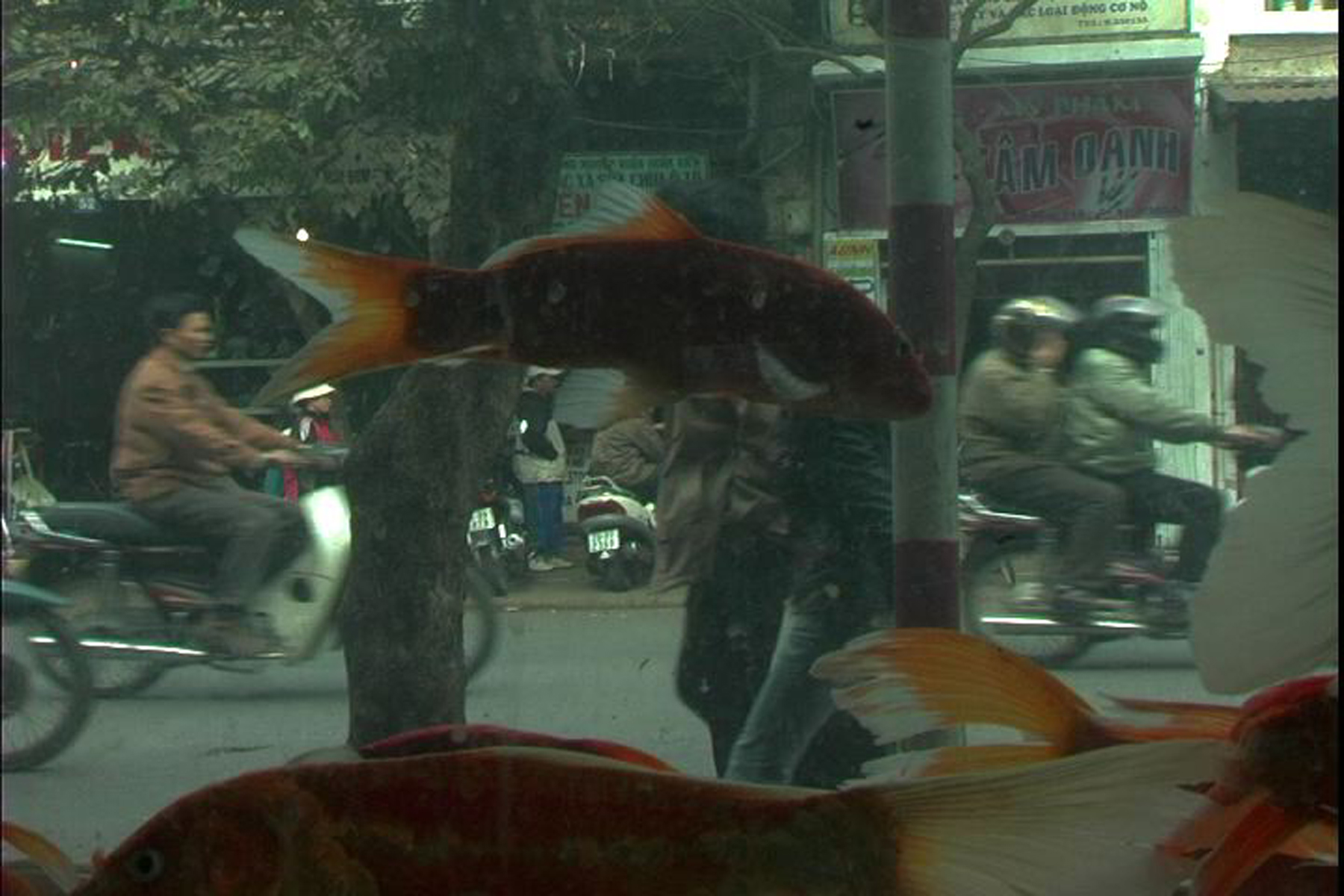Mark Street’s Hidden in Plain Sight, a cinematic meditation on perception, takes us on a personal and geographic voyage through four major cities with intense political histories and uncertain futures: Santiago, Dakar, Marseille, and Hanoi. Starting an ending in New York, this interwoven play of street level commerce and commuter imagery reads like a stack of vacation photos, viewed out of sequence at the end of a long journey. And similar to the act of memory, the film traces a non-linear path, where “small dramas unfolding” provide subtle alterations to subjective observation. Street’s use of text as a structuring device provides us reference points for continuity and the spatial contextualization of thought processes.
Through a subtle avoidance of public monuments, memorials and other visual markers of sanctioned history, Hidden in Plain Sight draws attention to the hegemonic role that sight plays within the urban landscape. However, by capturing commercial and political signs, slogans and graffiti, the viewer is reassured that this landscape is imminently recognizable in its apparent legibility, providing us with a sense of competency and continuity. Shifting back and forth between different cities, the gaze is framed and employed in the search for signs of political thought and commonality. Textual and aural references from the past are interwoven, juxtaposing the writing of progressive thought, while looking for glimmers of a new global history. The viewer is caught between the motion of image and interlude, suspended in time, asking, “Where do I belong?” This interstitial zone between the image and the text heightens a sense of uncertainty.
The viewer craves the image, the puzzle that must be solved, the authority of the sign as a marker on the map of time. Through the depiction of mirrors and televisions, Street hints at the tension between the individual and the communal. Likewise, his soundscape, created from field recordings, original music and archival speeches, also works to question one’s place in time and in society. His non-synchronous field recordings oscillate in and out of lyrical compositions, evoking a sense of the inauthentic within the cinematic document. Ultimately, Street engages the viewer in an international voyage through a landscape filled with information, with questions that cannot be answered, including the role of the individual and the impossibility of a collective visual experience. (Jessica Allee)
